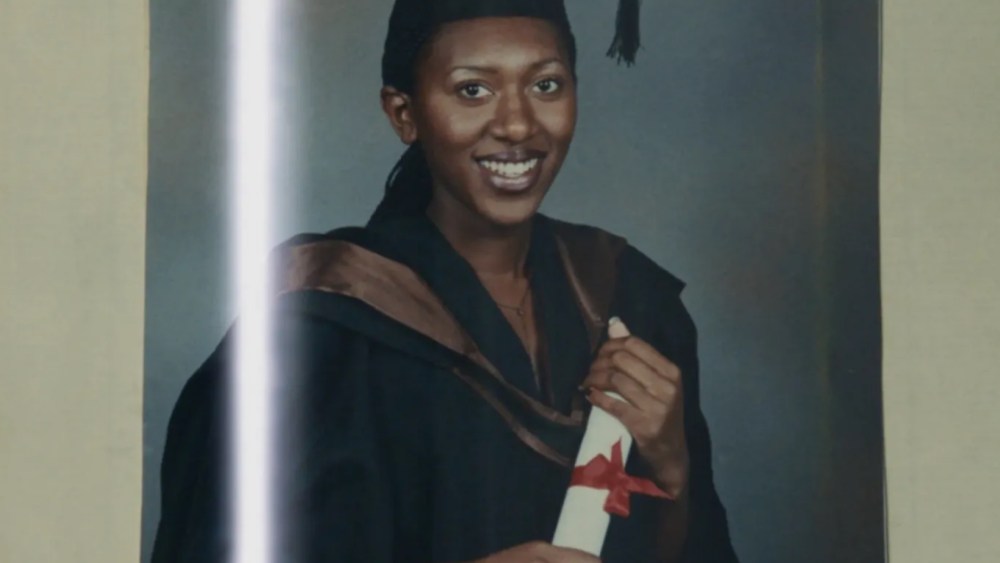The disruptive power of the #MeToo and Black Lives Matter actions has shifted the dialog spherical storytelling about underrepresented and marginalized communities, even as a result of the backlash inside the U.S. and completely different nations has swung the pendulum to the (far) correct, putting a variety of these optimistic elements at risk.
Nonetheless whereas the Trump administration’s efforts to roll once more DEI initiatives are the newest harbinger of a cultural correction that threatens to indicate once more the clock to a darker earlier, Black documentary filmmakers on the Joburg Film Competitors said they’re in search of to grab this second to disrupt and rethink extensively accepted historic narratives, notably throughout the Black experience.
“We’re having so many reckonings, and we’re really trying to deal with histories which have been launched to us, that we’re now saying, ‘We’ve to disrupt this,’” said the British filmmaker Eloïse King (“The Shadow College students”). “We’ve to acknowledge that the histories which have been shared…are ones that don’t basically belong to us and aren’t basically true.”
King was collaborating in a panel dialogue this week on the JBX market in Johannesburg alongside South African filmmakers Sara Chitambo-Hatira (“Black People Don’t Get Depressed”), Naledi Bogacwi (“Banned”) and Mmabatho Montsho (“Blood and Water”). The dialog, which was launched in collaboration with commerce physique SWIFT (Sisters Working in Film and Television), spotlighted the efforts of Black documentary filmmakers to reframe narratives spherical underrepresented and marginalized communities.
The focus on explored the strategies whereby the filmmakers faucet into every personal and collective narratives to tell tales that drawback, subvert and upend dominant tropes — what Chitambo-Hatira described as “rewriting and documenting the truth of people who didn’t have the voice sooner than.”
The director’s feature-length debut examines psychological nicely being stigmas in Black communities, specializing in melancholy and the perceptions surrounding it in Africa. It shows her effort to supply “one other historic previous, one other truth” to typically held beliefs about psychological nicely being on the continent whereas moreover exploring biases spherical Black ache and struggling.
King, whose documentary focuses on the multibillion-dollar “fake essay” commerce in Kenya, highlighted the work of the panelists in “reclaiming” tales about Black lives.
“By having a lens that’s coming from a person who historically has not had the prospect to doc their group…[and] by with the power to navigate the nuance of how we exist in these areas, is such a elementary part of this reclamation,” she said.
“The Shadow College students,” which premiered at IDFA and carried out this week on the Joburg Film Competitors, shows the director’s broader curiosity in “cultural turning components, and likewise institutional legislative turning components” unfolding in societies in flux. “Often what is happening on the ground is being launched as progress,” she said. “And I need to ask: For who?”
Bogacwi’s documentary “Banned,” regarding the outlawed apartheid-era movement film “Joe Bullet,” explores how the advertising and marketing marketing campaign in direction of the movie — the first South African attribute film with an all-Black strong — was part of wider censorship efforts by the apartheid authorities to not solely silence dissent nonetheless stamp out pleasure and ingenious expression in Black communities.
Whereas the events it depicts transpired half a century previously, Bogacwi linked the plight of “Joe Bullet” with the continued struggles of Black artists in South Africa’s ingenious group, pointing to present court docket docket battles between native actors and broadcasters over royalty funds. “We’re nonetheless experiencing [exploitation], merely on a particular diploma,” she said. Such episodes present that “revisiting historic previous is essential” for documentary filmmakers.
Their efforts, though, often put them at odds with institutional gatekeepers. Among the many many commissioners at most important broadcasters and streaming platforms, said Mmabatho, “there seems to be an unspoken rule that folk…don’t have to see social issue-driven content material materials. People merely have to see true crime or actuality reveals.” Bogacwi insisted that that shouldn’t deter documentarians with a powerful story to tell.
“I don’t assume we’re going to be a know-how that changes one thing if we’re always tip-toeing [around gatekeepers],” she said. “We don’t know what the viewers wishes until they get it.”
King, within the meantime, positioned the filmmakers’ struggles inside a broader continuum of repression of Black and completely different marginalized communities whereas offering a powerful corrective to that legacy. “In historic previous, people have often taken power from us,” she said. That has often obscured the precise truth “that we had [power], and it wasn’t theirs to absorb the first place.”
The Joburg Film Competitors runs March 11 – 16.
The put up Black Documentary Filmmakers on ‘Disruption,’ ‘Revisiting Historical past’ appeared first on Allcelbrities.
